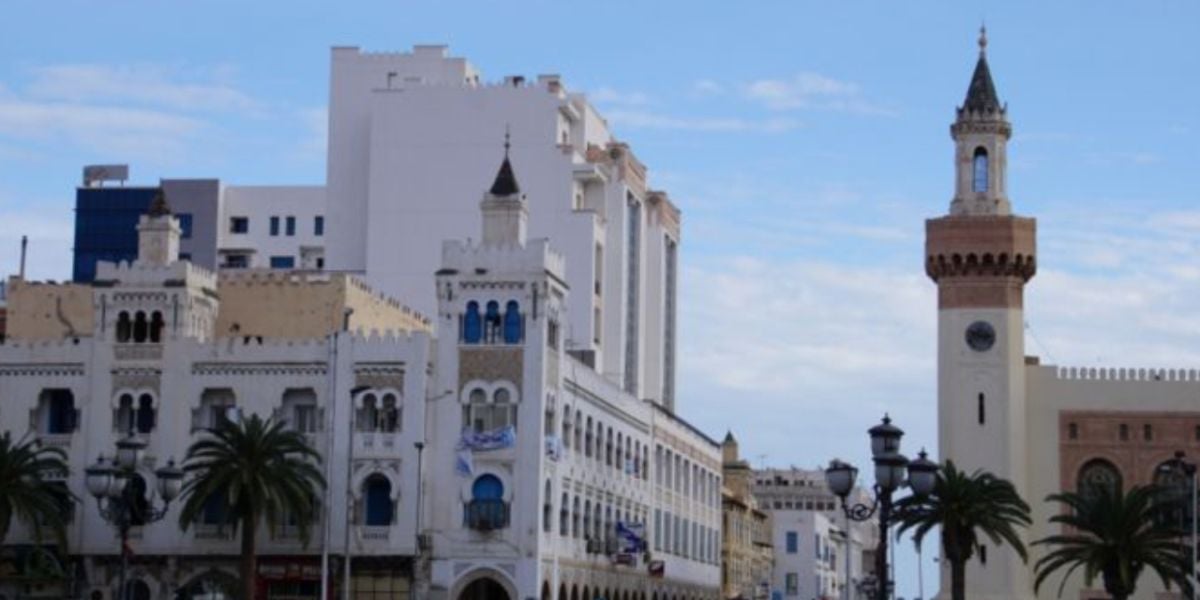
Located between the Sahel and Southern Tunisia, Sfax is, above all, a business, tourist, port and industrial city. It is thus deemed to be one of the country's major economic centers, thanks to its strategic position.
Like Tunis, Sfax has also been attracting many foreign professionals for many years. So if you are planning to settle and work there, finding a job should not be a difficult task, provided you know where to start from.
Why Sfax?
Sfax is a major port city in east-central Tunisia on the northern shore of the Gulf of Gabes. While Sfax is a popular resort city, it's not particularly known as a destination for job hunting. The options for finding a job in the city are quite limited — but if you look in the right industries (tourism, hospitality, oil and gas, etc.), you may find a suitable position.
Working and living in Sfax has a number of advantages.
First, as Sfax is a resort city, you will be able to enjoy a relaxed lifestyle with easy access to the beach, historical sights, beautiful scenery, and more.
The cost of living in Sfax is also substantially lower compared to most European cities. This means that if you are able to relocate to Sfax on an expat salary, you will be enjoying a very comfortable lifestyle.
The economy in Sfax
Besides industry, port activities and tourism, agriculture and fisheries also make a significant contribution to the city's economy. Note that Sfax is famous for its olive oil and almond oil exports. Fisheries, for their part, involve not less than 8 ports stretching over a 235 km coastline.
As regards tourism, Sfax hosts many hotels which not only welcome thousands of visitors but also create jobs. In fact, tourism and hospitality are the most promising areas for job hunting in Sfax.
Finally, services include trade and transport (road, railway, maritime and air), among many others. Indeed, the city has a rather developed and dynamic tertiary sector.
Sfax hosts one of the country's oldest ports. It is deemed to be the second Tunisian port in terms of market and economic importance. Note that the export of marine salt, olive oil, processed phosphates and many other products is carried out at the port of Sfax.
Which are the promising fields for expats in Sfax?
As mentioned above, the local economy is mainly driven by agriculture, breeding, fisheries, energy, exports and trade. However, you are also likely to be hired in other fields such as culture, health care, teaching, etc.
Indeed, the city hosts 26 public libraries, 2 university hospitals, 3 regional hospitals, 3 local hospitals, 10 private polyclinics, as well as the University of Sfax, the Faculty of Science, the Faculty of Economic Sciences and Management, among others.
In all cases, remember that Tunisian employers are more likely to hire locals. So you will have better chances of getting a job here if you are an expert in a specific field. Note that with some 80, 000 new graduates every year, competition is fierce in the local labor market.
How to find a job in Sfax
There are various ways to look for a job in Sfax, as in the rest of the country, and word of mouth is one of them. Feel free to spread the word among your friends, family on contacts on the spot so that they can put you in touch with employers. Consider giving them a copy of your resume as well.
Otherwise, networking, thanks to several online platforms such as Expat.com, Facebook, LinkedIn, Viadeo, etc., will also greatly help.
You can also make a list of local companies which might require a candidate with your profile and either contact them by phone or send them spontaneous job applications by email.
You can also try to get relocated to Sfax via a company in your home town. If a company you work for or want to work for has branch offices in Tunisia, this may be a good way for you to experience working in the county. Being transferred to Tunisia will also be a more convenient way of moving to the country and will guarantee you a higher salary and extra benefits that you probably won't get if you are hired locally.
How to apply for a job in Sfax?
If you are applying for an expatriate position in Sfax or elsewhere in Tunisia, you may often submit your resume and cover letter in English. This applies, for example, if you plan to work for an international hotel in Sfax.
However, in most other cases (especially if you are applying to work in a Tunisian company), you will need to have your application in French or Arabic.
You can use standard resume formats when applying for work in Tunisia: you can focus on your work experience and list it in reverse chronological order, or you can highlight your professional skills if you don't yet have much working experience.
When composing your application, try to make it as relevant as possible to the job you are applying for.
It is also important to be aware of the local sensitivities and restrictions. For instance, it's advised to avoid mentioning affiliation with any religious organizations and groups.
What are the working conditions in Tunisia?
The Labor Code, as amended by Law 96-62 of 15 July 1996, fixed laws regarding working conditions in Tunisia. The Labor Code regulates the following:
- the legal working age
- the legal working week
- entitlement to leaves
- and employment contracts for both Tunisian and foreign workers.
What is the minimum working age in Tunisia?
In Tunisia, children are allowed to work from the age of 16. However, the ability of children to work must be determined by medical supervision until the age of 18. In fact, a child can only remain in continuous employment provided he undergoes a medical examination every semester.
Working week in Tunisia
The legal working week consists of a maximum of 48 hours. This can be reduced but can't be lower than 40 hours a week.
An employee is entitled to a one-hour rest during his working day. This break can be taken once or several times.
As regards part-time jobs, the legal working week should generally not exceed 70% of the normal working week. Note that the accumulation of full-time and part-time work is prohibited.
There are also several public holidays observed in Tunisia:
- New Year's Day on January 1st
- Independence Day on May 20th
- Martyrs' Day on April 9th
- Labour Day on May 1st
- Aïd El-Fitr (dates vary)
- Aïd El Kebir (dates vary)
- Republic Day (July 25th)
- Ras el am el Hejri (Islamic New Year)
- Women's Day (August 13th)
- Prophet Mohammed's Birthday (October 9th)
- Evacuation Day (October 15th)
- Revolution and Youth Day (December 17th)
The number of days off you get for the holidays above depends on the company you work for and the industry you are in.
Weekly rest days in Tunisia
Agricultural and non-agricultural workers and their dependencies are entitled to a weekly rest day of twenty-four consecutive hours. This rest day may be granted either on Friday, Saturday or Sunday. In the agricultural sector, the rest day may also be granted on the weekly market day.
Annual leaves in Tunisia
All employees are entitled to a paid day off per month annually, provided they have been working with the same employer for at least one month.
However, the duration of the requested leave can not exceed a period of fifteen days with twelve working days. After five years of service with the same employer, the employee is entitled to an additional leave per period.
Leave dates are fixed on the 1st January of each year. In general, these are granted every year from June 1st to October 31.
The minimum salary in Tunisia
The minimum wage in Tunisia is guaranteed by a decree adopted following consultation with employer and employee trade unions in all sectors.
As of 2022, the minimum wage in Tunisia is set at 340 Tunisian dinars ($220) per month for a 48-hour work week. For a 40-hour work week, it is set at 290 dinars ($199) per month in the industrial sectors. Agricultural workers make from 9 dinars ($6.50) to 14 dinars ($10) per day.
How much you will make in Sfax or in any other city in Tunisia as a foreign professional depends on several factors. These are your line of work, the company you work for, whether you have been relocated to Tunisia by a company in your home country, and more.
Being relocated to Tunisia by a company in your home country may be the best option — especially when it comes to the benefits package. If you relocate to Tunisia within your company, you will often receive benefits such as accommodation, health insurance, covered transportation costs, tickets to fly back home for holidays, and more.
Depending on the company you work for, your salary will also probably be substantially higher than what local companies can offer.
If you were hired by a company in Tunisia, you will probably miss out on a lot of the above benefits. Your salary will depend on the work you do and your level of experience. Note, however, that even within the same industry, the salaries in Tunisia vary greatly.
A top professional in software development can make up to 12,000 dinars ($3,800). The salary of a programmer, on the other hand, may range from 3,000 ($970) to 5,000 dinars ($1,600) or higher.
Outside of the IT field, however, salaries are notably lower. The average salary for a secondary education teacher is around 1,000 dinars ($320) to 1,500 dinars ($490).
As we've mentioned above, you will also have a good chance of finding work in the tourism and hospitality sector. The salaries here vary greatly, depending on the hotel you work for. International hotels tend to offer more complete packages compared to local hotels.
Useful links:
Wzayef (jobs in Sfax)
Tanqeeb (jobs in Sfax)
We do our best to provide accurate and up to date information. However, if you have noticed any inaccuracies in this article, please let us know in the comments section below.








